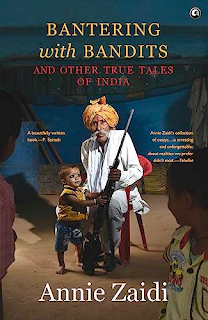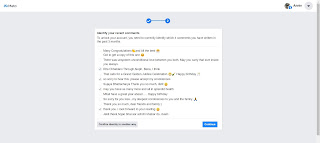I had intended to do this around the new year but better late than never. I have been thinking about unpaid labours of love, art and so on. Gender stuff aside, I have benefited from other people putting their work and their knowledge into the world for free. They do this via multiple platforms (many people make apps and other software and tech stuff available for free too) and in diverse media. I sometimes get tired of sitting and reading all the time, so the videos and podcasts and explainers made by strangers, friends and acquaintances have not merely enriched my life, but probably helped my physical and mental health, especially over the last three years. I am making a brief list of the ones that come to mind immediately.
People who read aloud fiction and poetry: There's Jameel Gulrays and others at Katha Kathan, and also the Adbi Duniya YouTube channel. Some other narrators have read short fiction that I have heard on Audible and I'm grateful that at least some content is free. Rekhta and its videos bring poetry and fun discussions to me even though I haven't been able to attend. I have watched and enjoyed a lot of Hindi Kavita and Urdu Studio videos too, over the years. Am also grateful for people who organize litfests and music concerts and then share the videos later. So many recordings of shows held in the 1980s and early 90s are now popping up and some of them are a joy. Also people who share Hindi film songs from the 1950s and 60s.
People who do explainers of literary theories or texts: The University of Hyderabad has some stuff up on YouTube. Raja Masood also has some clear videos which help people who are either intimidated by or just totally new to literary theory. Even after you read an essay or book, you may struggle with its context and wonder why these ideas are significant. The videos offer conversational aid, sort of base tutorials, or online engagement for people who aren't getting enough of it within their institutions. I am not a fan of online instruction. However, many people find it impossible to continue formal education. Even those of us who return to education after a long gap, as I have, or those who have jobs but would like to improve their understanding of literature, psychology and gender, do benefit from such videos.
So much thanks to YouTube, for talks from historians and watching musicians and dancers. I really like listening to Amit Varma's podcast Seen and the Unseen. It brings me closer to my community of writers, offers deep conversations with people I cannot meet or talk to in person. Also, a shoutout to Mariyam for her podcast, Main Bhi Muslim, and to
heritagetimes.in, and more recently, Ruchika Sharma's Eye makeup and Itihas channel.
Also, thank you to people who put up cooking recipe videos, sewing and knitting tutorials. And those who do how-to videos that help fix errors on heating systems, and how-to cut and sew dresses videos (I have successfully cut and stitched a shalwar during the pandemic by watching 3 different YouTube videos). And people who make memes (I am a top fan of Mad Mughal Memes).
A note of gratitude to stand-up comics too. Many of them young people who have obvious grief lurking in the backdrop of their lives, and who put up at least some of their work on YouTube for free. They have been a much-needed source of laughter at the end of the day, and there must be millions who look for levity in the midst of their gloom, but can't afford to buy tickets too often.
I've also looked for, and found, audio recordings of several plays, some classic and some modern. Some cold reads that popped up during the pandemic. These have helped and continue to help.
I do buy a lot of books. I watch plays when I can. I do subscribe to Netflix and Prime and I do watch the comedy specials and the longer acts. I am hoping all these guys make their fair share of money. But there are many people who cannot afford the subscriptions or the comedy clubs, the tickets to readings, the samplers of literature that help them broaden their horizons. Those who offer to share the little they can afford to share by offering time, know-how, insights for free, thank you.



